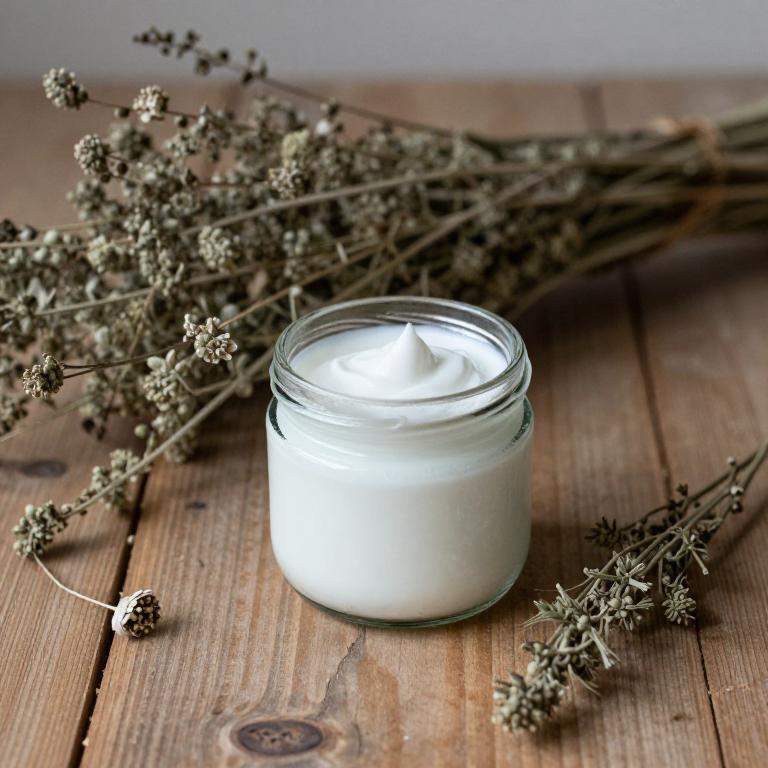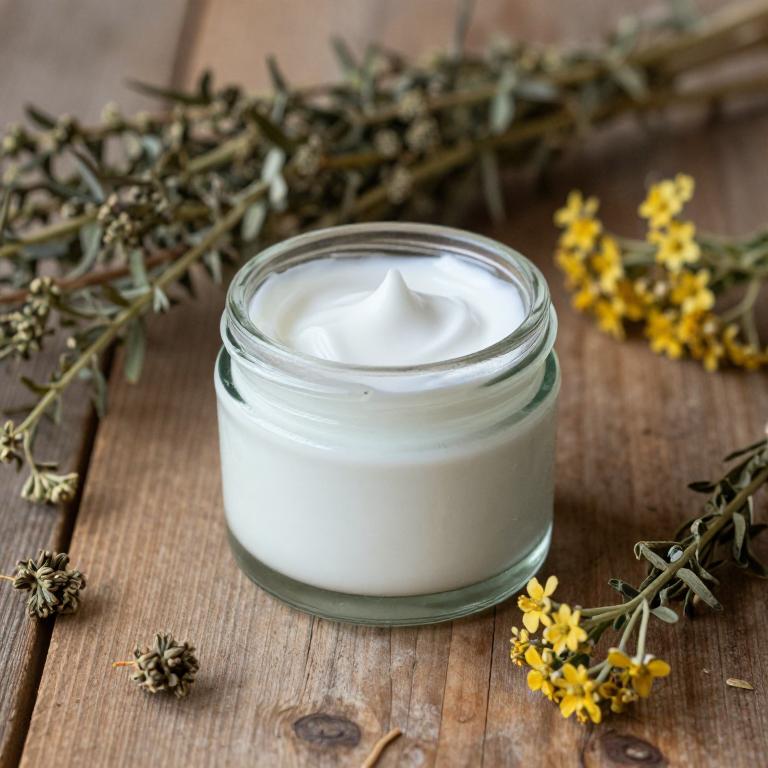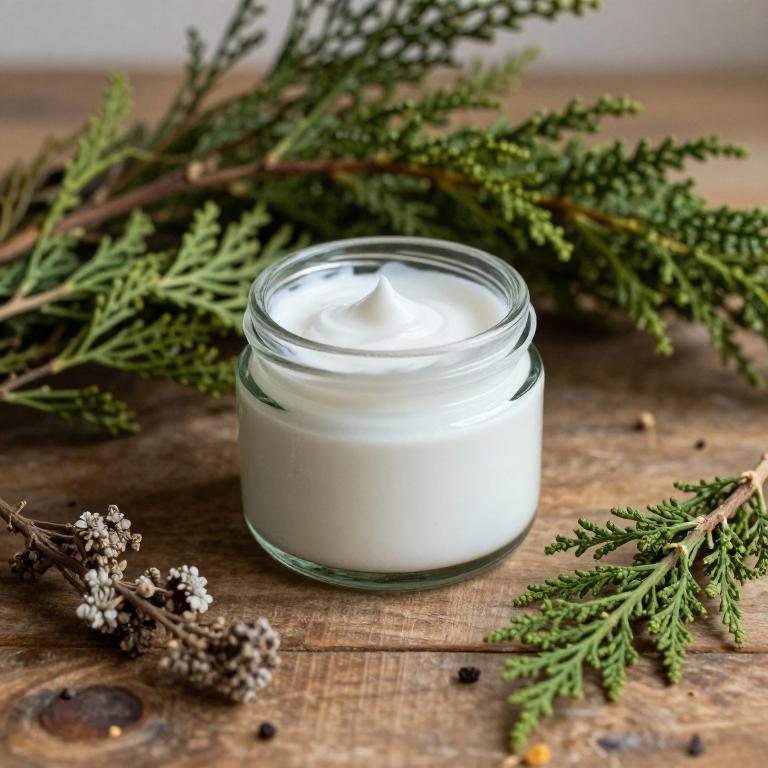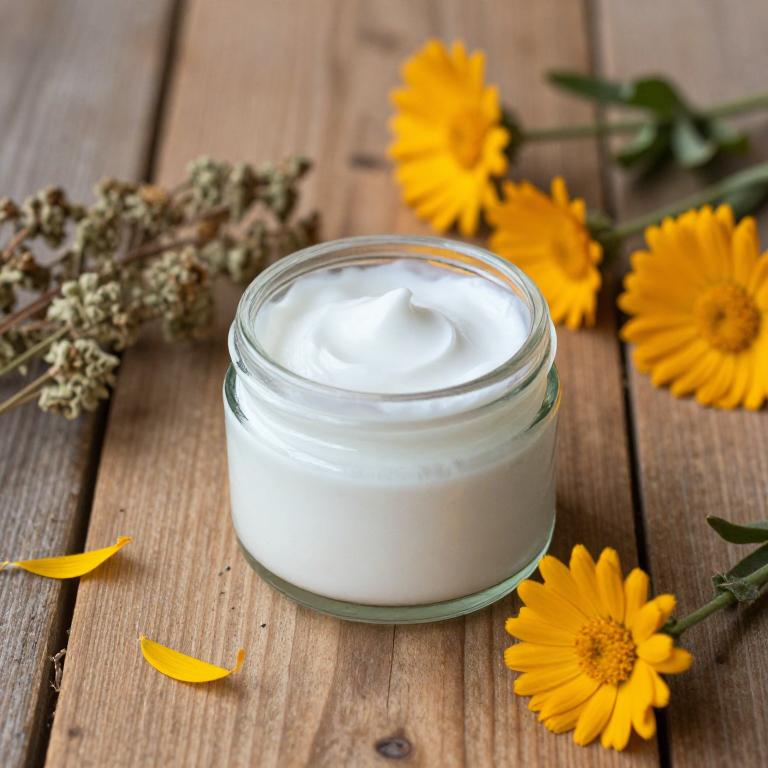10 Best Herbal Creams For Jock Itch

Herbal creams for jock itch are natural remedies that often contain ingredients like tea tree oil, calendula, and chamomile, which are known for their antifungal and anti-inflammatory properties.
These creams are typically preferred by individuals seeking alternatives to conventional antifungal treatments, as they may be less harsh on the skin. Many herbal formulations are designed to soothe irritation and promote healing while targeting the fungal infection causing jock itch. However, it's important to note that while some herbal creams may offer relief, they may not be as effective as prescription antifungal medications for severe cases.
Always consult a healthcare provider before using herbal treatments to ensure they are safe and appropriate for your specific condition.
Table of Contents
- 1. Aloe vera (Aloe barbadensis)
- 2. Field horsetail (Equisetum arvense)
- 3. Stinging nettle (Urtica dioica)
- 4. Ginger (Zingiber officinale)
- 5. Thyme (Thymus vulgaris)
- 6. Chaste tree (Vitex agnus-castus)
- 7. Blessed thistle (Cnicus benedictus)
- 8. Italian cypress (Cupressus sempervirens)
- 9. English lavender (Lavandula angustifolia)
- 10. Marigold (Calendula officinalis)
1. Aloe vera (Aloe barbadensis)

Aloe barbadensis, commonly known as aloe vera, is often used in herbal creams for its soothing and healing properties, making it a popular choice for treating jock itch.
These creams typically contain aloe vera gel, which has anti-inflammatory and antimicrobial properties that can help reduce redness, itching, and irritation associated with the condition. The natural moisturizing effects of aloe vera can also help restore the skin's barrier, promoting faster healing. While aloe-based creams may provide relief for mild cases of jock itch, they should not replace medical treatment for severe or persistent infections.
It is important to consult a healthcare provider for proper diagnosis and treatment, especially if symptoms persist or worsen.
2. Field horsetail (Equisetum arvense)

Equisetum arvense, commonly known as scouring rush, has been traditionally used in herbal remedies for its astringent and antifungal properties.
When incorporated into herbal creams, it may help alleviate symptoms of jock itch by reducing inflammation and moisture, which are key factors in fungal growth. These creams often combine Equisetum arvense with other antifungal herbs like tea tree oil or calendula to enhance their effectiveness. However, while some individuals may find relief using these natural remedies, it is important to consult a healthcare professional for proper diagnosis and treatment, especially if the infection persists or worsens.
As with any herbal product, potential allergies or skin sensitivities should be considered before use.
3. Stinging nettle (Urtica dioica)

Urtica dioica, commonly known as nettle, is a plant that has been traditionally used in herbal medicine for its anti-inflammatory and antifungal properties.
Urtica dioica herbal creams are often formulated to treat skin conditions like jock itch, which is caused by fungal infections such as athlete's foot or ringworm. These creams typically contain extracts from the leaves and roots of the nettle plant, which may help reduce itching, redness, and inflammation associated with jock itch. While some users report relief from symptoms when using nettle-based creams, it is important to consult a healthcare professional before using them, especially if the condition persists or worsens.
As with any topical treatment, it is advisable to perform a patch test to check for allergic reactions.
4. Ginger (Zingiber officinale)

Zingiber officinale, commonly known as ginger, has been traditionally used for its anti-inflammatory and antimicrobial properties, making it a potential ingredient in herbal creams for jock itch.
These creams often incorporate ginger extract to help soothe the itching and irritation associated with the fungal infection. The warming effect of ginger can improve blood circulation in the affected area, promoting faster healing. However, it is important to note that while some individuals may find relief from ginger-based creams, they should not replace prescribed antifungal treatments.
Always consult a healthcare professional before using any herbal remedy for jock itch to ensure safety and effectiveness.
5. Thyme (Thymus vulgaris)

Thymus vulgaris, commonly known as thyme, is a herb that has been traditionally used for its antifungal and antiseptic properties, making it a potential ingredient in herbal creams for treating jock itch.
These creams often contain thyme essential oil or extracts, which may help alleviate symptoms such as itching and redness by reducing fungal growth and inflammation. While some studies suggest that thyme has antimicrobial effects, more clinical research is needed to confirm its efficacy for jock itch specifically. Herbal creams containing thymus vulgaris are generally considered safe for topical use, though they may cause irritation in some individuals.
As with any treatment, it is advisable to consult a healthcare professional before using thyme-based creams for persistent or severe cases of jock itch.
6. Chaste tree (Vitex agnus-castus)

Vitex agnus-castus, commonly known as chasteberry, is a herbal ingredient that has been traditionally used for its potential anti-inflammatory and antifungal properties.
Some herbal creams containing vitex agnus-castus may be used as a complementary treatment for jock itch, a fungal infection caused by dermatophytes. While there is limited clinical research on its efficacy for fungal infections, some users report that these creams may help reduce symptoms like itching and redness. However, it is important to consult a healthcare provider before using any herbal remedies, as they may interact with other medications or have side effects.
For effective treatment of jock itch, antifungal creams containing clotrimazole or terbinafine are generally recommended as first-line options.
7. Blessed thistle (Cnicus benedictus)

Cnicus benedictus, commonly known as St. Benedict's herb, has been traditionally used in herbal medicine for its anti-fungal and anti-inflammatory properties.
Herbal creams containing Cnicus benedictus are often formulated to provide natural relief for conditions like jock itch, which is caused by fungal infections. These creams may help to reduce redness, itching, and irritation associated with the condition by targeting the underlying fungal growth. However, it is important to consult a healthcare professional before using any herbal remedies, as they may not be suitable for everyone and could interact with other medications.
While some users report positive results, scientific evidence supporting the efficacy of Cnicus benedictus in treating jock itch is limited, and conventional antifungal treatments remain the standard of care.
8. Italian cypress (Cupressus sempervirens)

Cupressus sempervirens, commonly known as the Mediterranean cypress, has been traditionally used in herbal medicine for its potential antifungal and anti-inflammatory properties.
Some herbal creams containing extracts from this plant may be used topically to treat jock itch, a fungal infection caused by dermatophytes. These creams are believed to help soothe the itching and redness associated with the condition while potentially inhibiting fungal growth. However, it is important to consult a healthcare professional before using any herbal remedies, as their efficacy and safety have not been fully established in clinical studies.
While some individuals may find relief with these natural treatments, they should not replace conventional antifungal medications without medical guidance.
9. English lavender (Lavandula angustifolia)

Lavandula angustifolia, commonly known as English lavender, is often used in herbal creams for its soothing and antifungal properties.
These creams typically contain lavender essential oil or dried lavender flowers, which have been traditionally used to relieve skin irritation and inflammation. Lavender's natural antifungal compounds may help combat the Trichophyton fungi responsible for jock itch, providing a natural alternative to conventional treatments. The calming aroma of lavender also offers a pleasant sensory experience, promoting relaxation during application.
However, it is important to consult a healthcare professional before using lavender-based creams, especially for severe or persistent cases of jock itch.
10. Marigold (Calendula officinalis)

Calendula officinalis, commonly known as pot marigold, is a medicinal plant often used in the formulation of herbal creams for jock itch due to its anti-inflammatory and antimicrobial properties.
These creams typically contain calendula extract, which helps soothe irritated skin and may reduce fungal growth associated with the condition. The natural ingredients in calendula officinalis are believed to promote healing and provide relief from the redness, itching, and discomfort caused by jock itch. While not a substitute for antifungal medications, calendula-based creams can be a complementary treatment for mild cases.
However, it is important to consult a healthcare provider before using these creams, especially if symptoms persist or worsen.